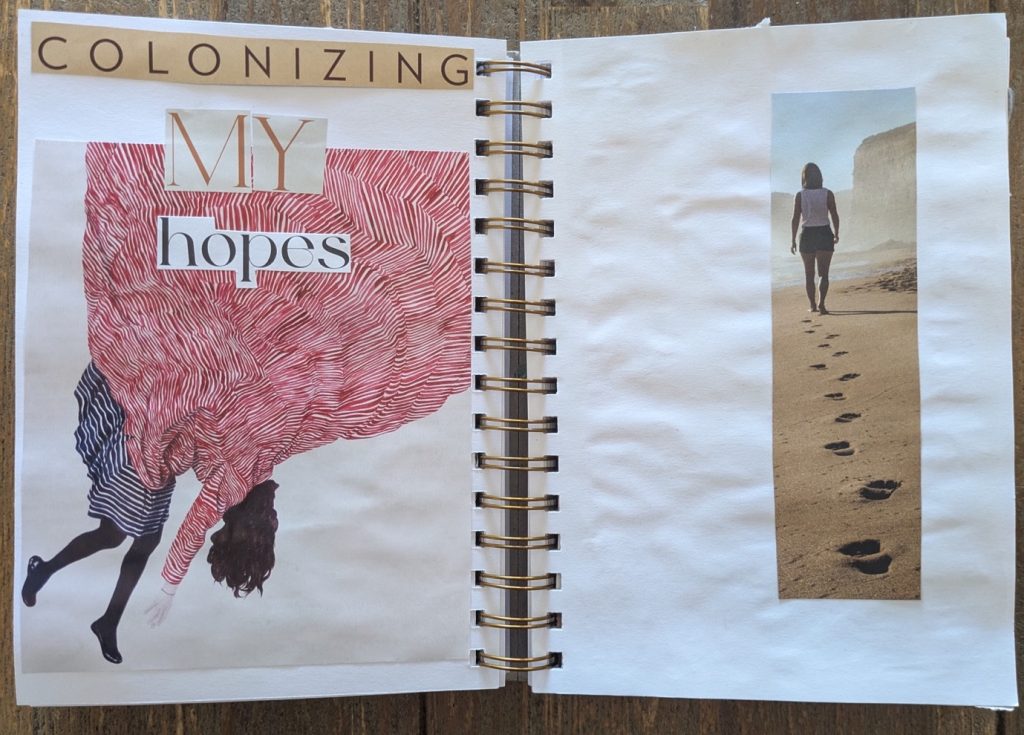Creative Writing as Therapy: The Power of Words in Emotional and Personal Exploration

Unlocking the Healing Potential of Words
In a world filled with chaos and uncertainty, many people are searching for a safe space to explore their emotions. Creative writing has emerged as one such refuge, offering a powerful outlet for expression. This form of writing is not merely an artistic endeavor; it has begun to be recognized widely for its therapeutic potential.
By putting pen to paper—or fingers to keyboard—individuals engage in a profound journey of self-discovery. This therapeutic approach comes with several key benefits that enrich the lives of those who practice it:
- Enhances emotional awareness: Writing encourages a deeper understanding of personal feelings. For instance, when someone writes about their experiences, they may identify emotions they hadn’t recognized before, such as sadness or anger. This insight can drive meaningful change in a person’s life, prompting them to make informed choices.
- Reduces stress: The act of writing can serve as a cathartic release, alleviating anxiety. Journaling, for example, has been shown to reduce the intensity of stressful thoughts. Many individuals find solace in writing about their day-to-day experiences, which helps to untangle complex emotions and provides clarity during trying times.
- Promotes healing: Sharing personal stories can facilitate emotional recovery and resilience. Participating in writing groups or workshops offers a safe environment for individuals to share their narratives and gain support from peers, thereby reinforcing community and fostering a sense of belonging.
- Encourages self-reflection: Writers often gain insights into their behaviors, motivations, and desires. By reflecting on their words, they can decipher patterns in their life that lead to personal growth and development.
In the United States, various workshops and programs are tailored to foster this creative outlet. Organizations like the National Writing Project host events across the country, inviting individuals to embrace writing as a means of exploration and healing. From community classes in local libraries to online forums for virtual support, the intention remains clear: to empower people through the written word. These workshops often provide participants with prompts and exercises designed to stimulate creativity and emotional expression.
As we delve deeper into the intricacies of creative writing as therapy, we’ll explore how the power of language can shape our emotional landscapes, opening doors to profound personal exploration. The journey through creative writing not only nourishes the mind but also bridges gaps between individuals, fostering understanding and connection in a divided world.
DIVE DEEPER: Click here to uncover the world of artistic expression

Exploring Emotional Depth through Words
Creative writing transcends traditional forms of expression, offering individuals a unique avenue to explore their emotional depths. As writers weave their narratives, whether through fiction, poetry, or personal essays, they unlock facets of their psyche that may otherwise remain unexamined. This exploration can be especially beneficial in navigating life’s challenges—trauma, loss, or even everyday stressors—by transforming them into relatable stories that not only enhance personal understanding but also foster connection with others.
The therapeutic benefits of creative writing extend beyond simple expression. Engaging in this practice can facilitate significant emotional breakthroughs. Research has shown that individuals who share their creative work often experience a reduction in feelings of isolation, as their messages resonate with others facing similar struggles. Here are a few key areas where creative writing as therapy demonstrates its impact:
- Improving Emotional Regulation: Writing allows individuals to articulate complex feelings, enabling them to process emotions constructively rather than suppressing them. Those who write regularly often find themselves better equipped to identify triggers and respond to emotional upheaval with clarity and composure.
- Fostering Resilience: Each piece of writing becomes a testament to personal strength. The act of recounting one’s experiences not only serves as a reflective practice but also helps in building resilience over time, helping writers navigate future adversities with greater confidence and poise.
- Creating a Narrative of Hope: Through creative writing, individuals can reframe their experiences into stories of hope and triumph. This powerful narrative shift encourages a more optimistic outlook, demonstrating how language can reshape one’s perception of reality.
- Enhancing Problem-Solving Skills: As individuals delve into their thoughts and feelings on paper, many discover new perspectives and solutions to dilemmas they face. Writing can act as a brainstorming tool, providing clarity in decision-making.
Numerous workshops, retreats, and online programs are designed specifically to harness the therapeutic properties of creative writing. These initiatives often cater to diverse demographics, ensuring that people from various backgrounds feel included. For instance, organizations like Poets & Writers and The Writers’ Workshop offer resources and events aimed at nurturing creative expression and emotional exploration within communities across the United States.
The inclusion of guided prompts during these sessions not only sparks creativity but also encourages participants to confront and articulate their innermost thoughts and feelings. As the participants unravel their narratives, they often find themselves walking a path of self-discovery—one that begins to heal emotional wounds and pave the way for personal growth.
In this digital age, the opportunities for engaging in therapeutic writing have expanded beyond traditional formats. Online forums and social media platforms now serve as spaces where individuals can share their work and connect with a broader audience, enriching the communal experience of exploring creative writing as a therapeutic tool.
Creative writing serves as a powerful tool for emotional and personal exploration, enabling individuals to delve into their thoughts and feelings in a unique and expressive manner. Through the act of writing, people can confront experiences that may be challenging to articulate otherwise. This therapeutic exercise facilitates self-discovery and encourages a deeper connection to one’s inner self. Here, we explore some significant advantages of utilizing creative writing as a form of therapy.
| Advantage | Description |
|---|---|
| Emotional Release | Creative writing allows individuals to express suppressed emotions, leading to a cathartic experience that promotes mental well-being. |
| Enhanced Self-Reflection | Writing encourages individuals to reflect on personal experiences, enabling greater understanding and insights into one’s life and choices. |
The therapeutic benefits of creative writing are compounded by its ability to foster a sense of community among writers. Participating in writing groups or sharing work with others can offer support and validation that further enhances the therapeutic process. This creative outlet not only aids in personal exploration but also connects individuals in shared experiences, underscoring the profound power of words.
DISCOVER MORE: Click here to find out how music can boost your creativity
Transforming Pain into Purpose
Creative writing not only serves as a means of catharsis, but it also empowers individuals to transform their pain into purpose. This alchemical process of turning raw emotional experiences into structured narratives enables writers to regain control over their circumstances. When pain is articulated through the written word, it can shift from being a burden to becoming a catalyst for personal and artistic growth. Numerous studies support this notion, suggesting that individuals engaged in writing therapy experience improved mental health outcomes, including decreased symptoms of anxiety and depression.
Another critical aspect of creative writing as therapy is its potential for self-reflection. Writers often find themselves revisiting and reevaluating their past experiences. A simple prompt that encourages reflection, such as “Describe a moment when you felt vulnerable,” can lead to significant insights. Because the written word allows a writer to step back from their experiences, they can approach them with a fresh perspective. This practice has been identified as pivotal in cognitive-behavioral therapy, where restructuring thoughts can lead to a significant reduction in negative emotional patterns.
In the context of the United States, various educational institutions and nonprofits are leveraging the benefits of creative writing for mental wellness. Programs like Write Around Portland and the National Alliance on Mental Illness (NAMI) have integrated writing workshops into their mental health initiatives. These programs help participants articulate their journeys and cultivate community support. The act of sharing work within a safe and structured environment not only facilitates healing but also builds a sense of belonging among participants.
The collaborative nature of these workshops allows individuals to find their voice through shared storytelling. Such initiatives highlight the power of community in emotional healing, demonstrating how writing can forge meaningful connections. As writers listen to each other’s stories, they often reflect on their narratives, discovering common threads and universal truths. This exchange fosters empathy and understanding—two essential elements in the healing process.
Additionally, the therapeutic benefits of creative writing are not limited to group settings. Solo writers often find solace in maintaining personal journals. According to researchers at the Pennebaker Writing Institute, expressive writing has been shown to lead to physiological benefits, such as improved immune function and better stress management. This practice of unscripted writing, often referred to as “free writing,” allows individuals to pour their thoughts onto the page without the constraints of grammar or structure. The goal is simply to write, providing a liberating experience that encourages spontaneity and authenticity.
As technology continues to evolve, mobile applications and online programs have emerged, broadening access to therapeutic writing exercises. Platforms like 750 Words and Day One encourage users to write daily, promoting mental clarity and emotional health. Such digital resources make it easier for individuals to integrate writing into their daily routines, ensuring that the practice becomes a steady source of mindfulness and reflection.
In summary, engaging in creative writing can lead to profound emotional and psychological growth. By translating complex feelings into narratives, individuals take significant strides in their emotional wellness journeys. The intrinsic ability of words to heal, connect, and empower underscores the potential of creative writing as a pivotal therapeutic tool in modern society.
DIVE DEEPER: Click here to discover how to create delicious ethnic dishes at home
Words as a Pathway to Healing
In conclusion, the exploration of creative writing as therapy reveals a profound opportunity for individuals to embark on transformative journeys of emotional healing and self-understanding. The ability to articulate complex feelings into cohesive narratives serves not only as a form of expression but as a mechanism for regaining agency over one’s life experiences. By embracing the power of words, writers can navigate through their emotional landscapes, reconciling pain with purpose and fostering a greater sense of self-awareness.
As highlighted throughout this article, the therapeutic benefits of writing extend beyond the individual to create supportive communities that celebrate shared stories. Programs across the United States, such as those offered by Write Around Portland and the National Alliance on Mental Illness (NAMI), illustrate how collective engagement can enhance emotional resilience. This community-focused approach emphasizes that healing is often amplified when one is surrounded by understanding and empathy.
Moreover, the rise of digital platforms has made therapeutic writing more accessible to a wider audience, encouraging spontaneous and reflective practice. Whether through online journaling apps or casual note-taking, individuals can seamlessly weave the act of writing into their daily lives, harnessing its power as a tool for mindfulness and reflection. As we continue to recognize the essential role of mental health in overall well-being, creative writing emerges as a significant ally in the pursuit of emotional wellness.
Ultimately, the written word possesses an undeniable power to heal, connect, and empower those who dare to explore their innermost thoughts and feelings. In this age, where mental health awareness is ever more crucial, embracing creative writing as a therapeutic avenue could be a vital step toward personal growth and healing.


